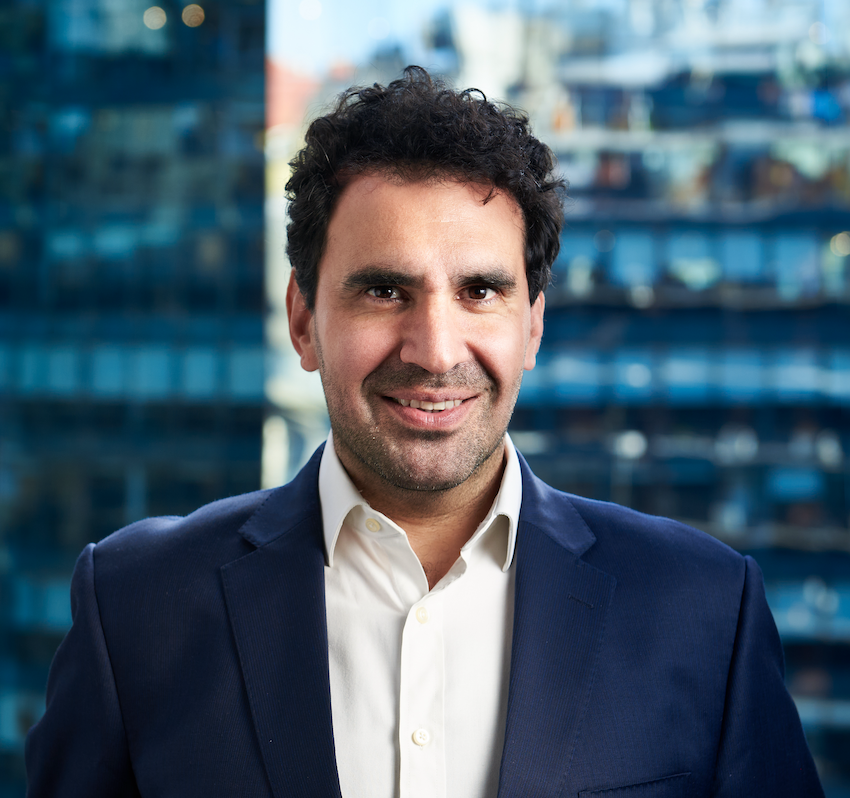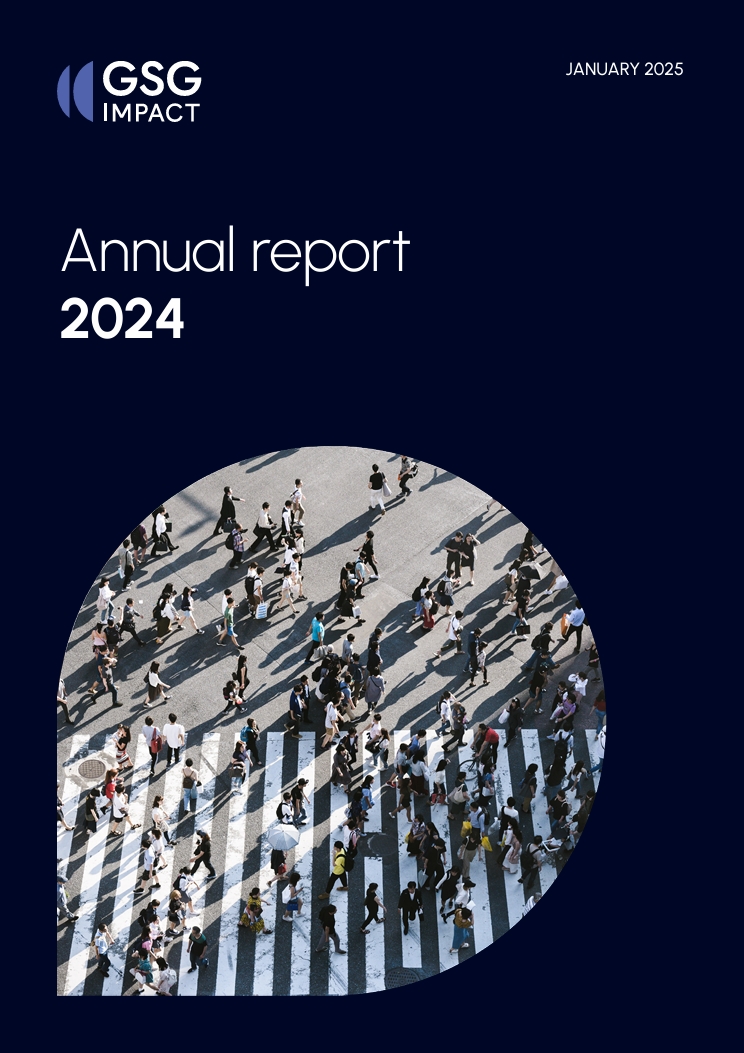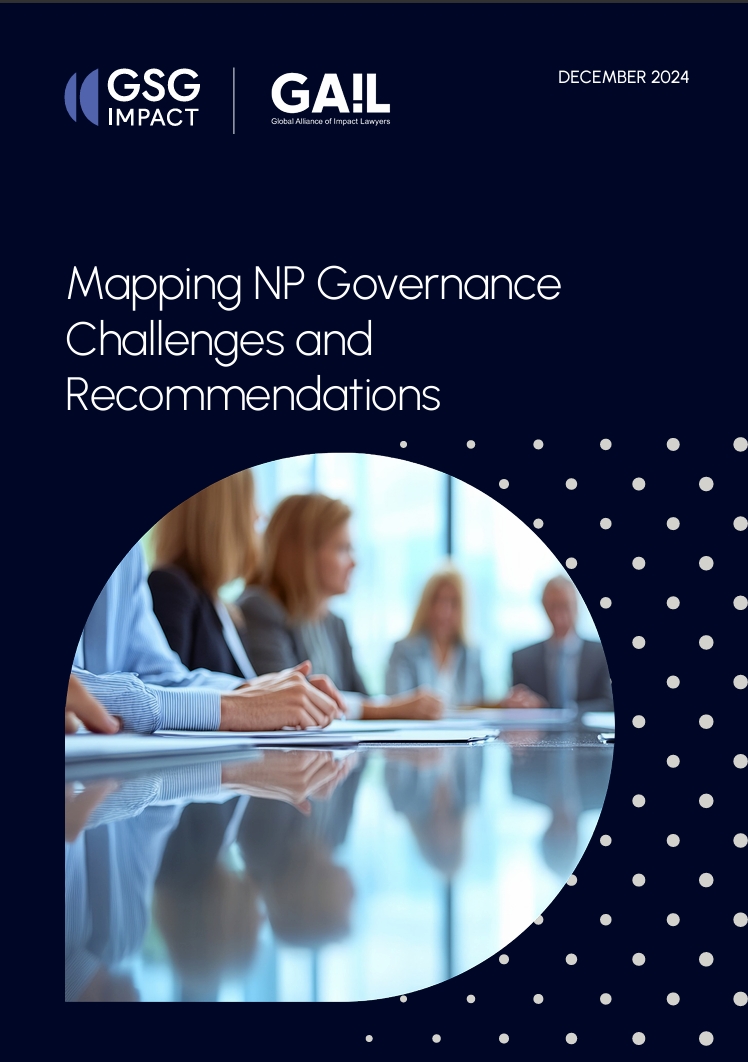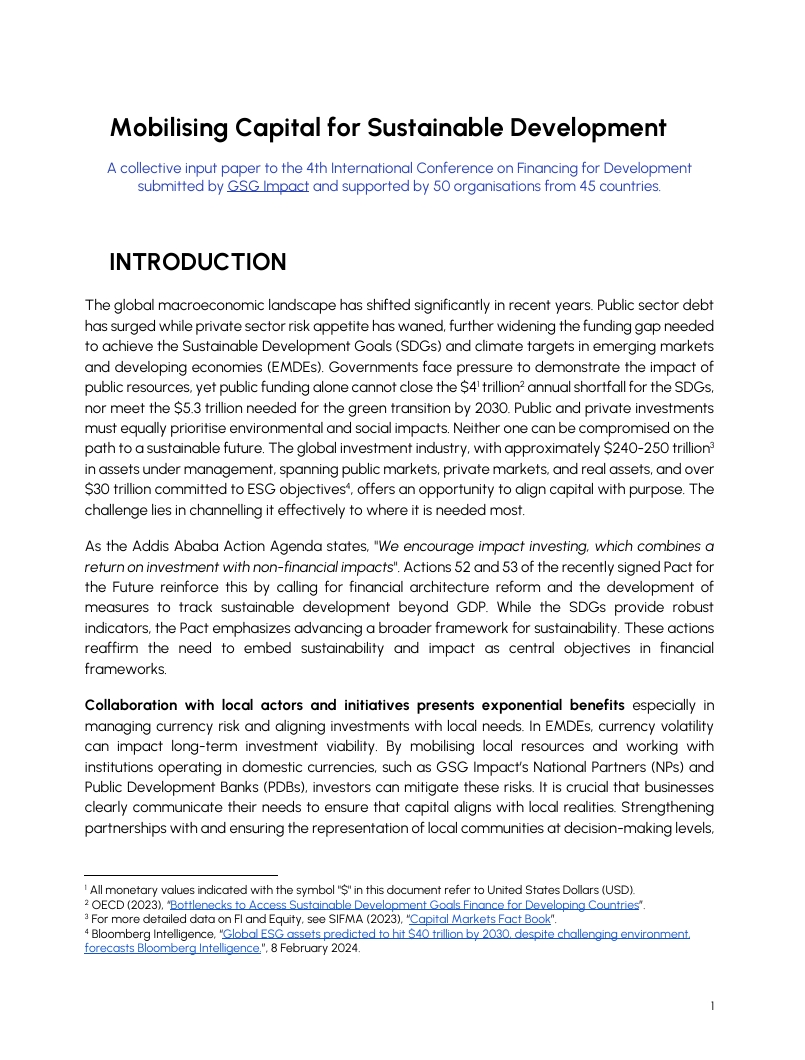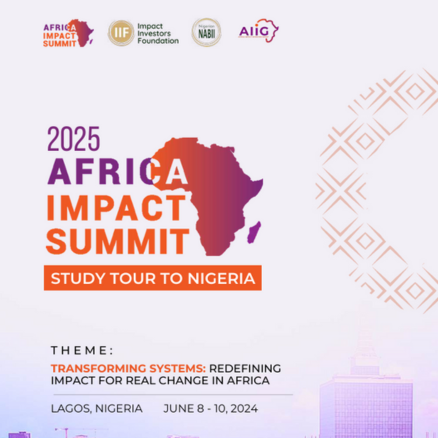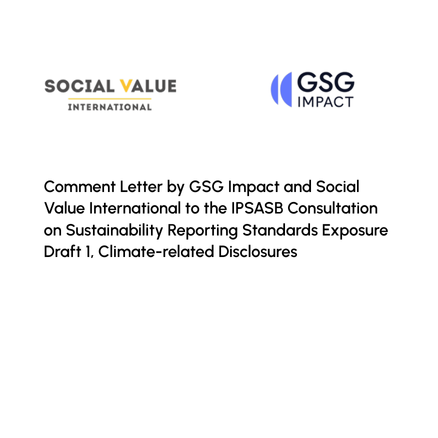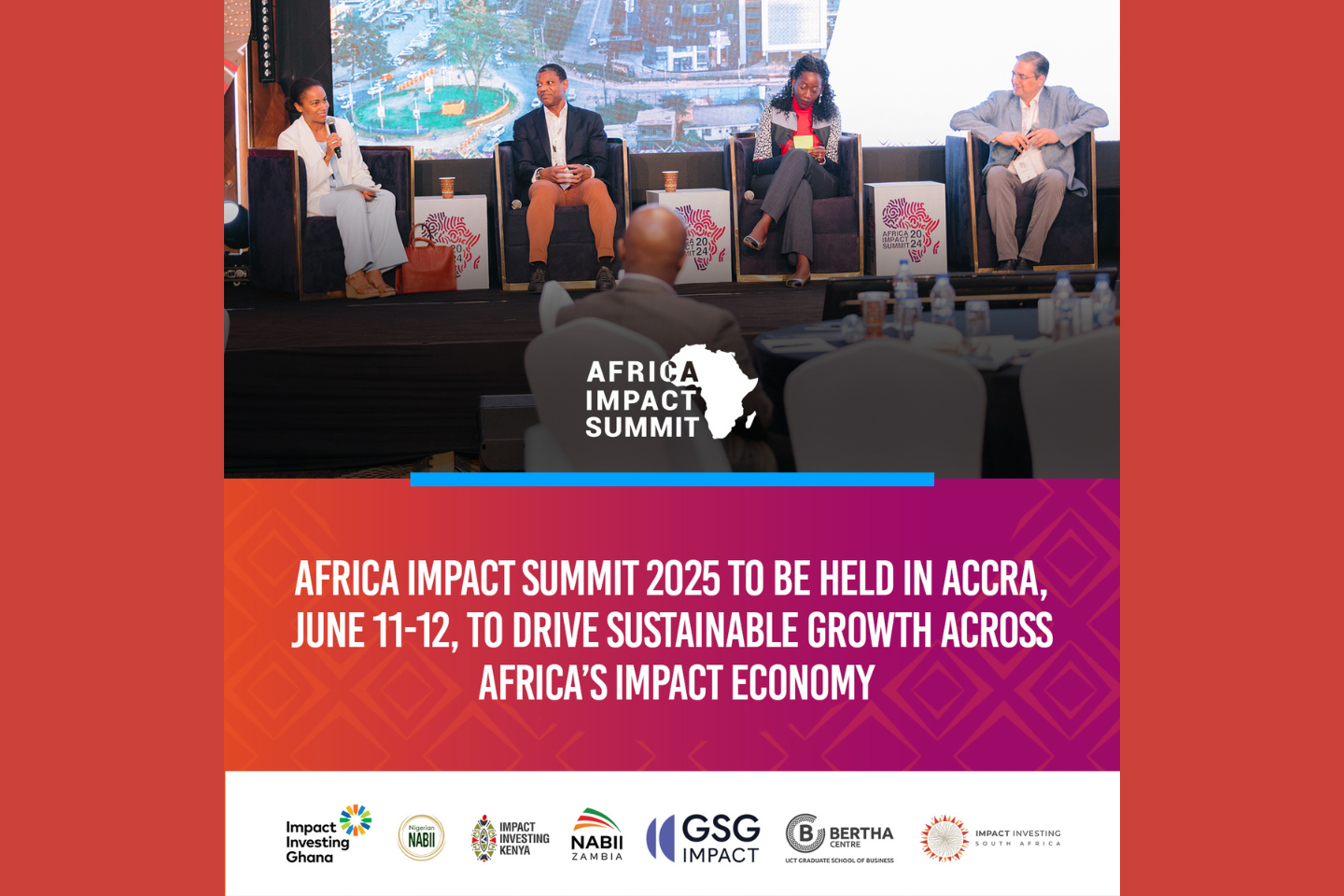
From Colombia to Türkiye, impact policy wins drive impact economies
Given recent geopolitical shifts and mounting uncertainty, there is a high level of pressure for private solutions to fill gaps left by shrinking aid budgets and tightening fiscal belts. In this challenging climate, impact investing offers a value for money proposition like no other. As global leaders and stakeholders descend on the 2025 World Bank-IMF Spring Meetings this April, we have a unique chance to advocate, inform, and advance action on impact policymaking as a key enabler of a fairer, more just economic system.
Impact policymaking is the intentional design and implementation of government policies that align public resources and regulations with measurable social and environmental outcomes, rather than traditional activity-based inputs. Further, impact policymaking connects capital to outcomes, acting as a common thread from global standards to local action.
An impact economy is one where measurable, positive impact is at the core of all investment, business, consumption, and government decisions. For over ten years, GSG Impact has led the development of impact economies, in which governments have three roles in advancing impact economies alongside stakeholders in the private sector and civil society:
a) market participant in terms of “outcomes” rather than “activities” when spending or investing directly;
b) market regulator by facilitating the flow of private capital towards impact opportunities; and
c) market facilitator to convene, educate, and foster robust impact ecosystems.
Key “policy wins” that drive impact economies
Through the work of GSG Impact´s network of National Partners and stakeholders active in over 50 countries, we have researched and identified key “policy wins” that lead to impact policymaking and enable impact economies. These lessons will strengthen discussions held at the World Bank Spring Meetings and beyond, where participants are calling for coherent, coordinated policy approaches that elevate outcomes and drive inclusive, climate-resilient growth.
Launch of government-enabled wholesale funds
Firstly, government-enabled wholesale impact funds highlight what the public sector can do as market participant and facilitator, stimulating the supply of capital for social and environmental good. Wholesale impact funds are large-scale investment vehicles that channel capital through intermediaries rather than investing directly in end-beneficiaries. They provide capital and capacity to local fund managers, financial institutions, or enterprises that, in turn, invest in impact-driven initiatives.
Over the past years, governments have played a crucial role in setting up wholesale funds by providing capital directly or creating mechanisms to help them access the funding. For example, Better Society Capital (BSC) is the first impact wholesaler. Set up in the UK in 2012, BSC received funding from the British government valued at £400m (US$ 532m) from unclaimed or “dormant assets” in the banking system. Since then, BSC has successfully leveraged additional capital from the private sector. As of April 2025, BSC committed £708m in funds providing affordable homes, community investment, and local renewable energy.
In the past five years, the number of wholesale funds worldwide grew to 19 initiatives, of which 11 are being brought to market by GSG Impact and National Partners. One of the newest wholesale funds under design is in Ghana where the GSG Impact National Partner identified local pension funds, valued at approximately $5 billion, as a source of domestic impact capital and created the Ci Gaba Fund. The Fund will channel blended capital from pension funds, DFIs, and philanthropic investors to local intermediaries serving small businesses, especially those led by women and youth.
Develop taxonomies and reporting for improved government decision-making
As market regulators, governments can create enabling environments to help direct impact capital to where it is needed most. To make informed decisions, investors and other market players require comparable, auditable, and high-quality information.
Recently, governments worldwide have advanced efforts to define and regulate sustainable finance. This includes developing taxonomies to classify sustainable investments and requiring companies to disclose sustainability-related information, aligned with international frameworks.
Taxonomies create a common language, giving the sector rigor and discipline while preventing greenwashing. The EU launched the first comprehensive taxonomy in 2020, offering a blueprint for other countries to adapt to their contexts. As of July 2024, over 53 taxonomies had been developed globally, and 24 fully implemented.
For example, Colombia led in Latin America, introducing a green taxonomy in 2022 that aligns with global standards, while emphasizing land use and forest preservation, given the country's agricultural goals.
In parallel, countries began mandating sustainability disclosures and reporting for listed companies, guided by international frameworks like the ISSB standards from the IFRS Foundation. As of now, 35 jurisdictions—representing 60% of global GDP and emissions—have committed to ISSB adoption.
Alongside Europe’s ESRS, these efforts aim to build a global, integrated sustainability reporting system. Ongoing work between ISSB, ESRS, and the Global Reporting Initiative (GRI) seek to ensure interoperability between jurisdictional requirements to prevent double-reporting
Shift from government spending on activities to outcomes
To fully embrace impact, governments must shift from funding activities to funding outcomes. Most public budgets today focus on what is delivered—not what is achieved. GSG Impact has pioneered outcomes-based spending schemes. For example, education spending often tracks inputs, not results like improved STEM scores or reduced dropout rates for girls.
Outcomes partnerships, such as Social Impact Bonds (SIBs), align funding with measurable results. The UK pioneered this model in 2010 and has since launched nearly 100 SIBs, mobilizing £217m and delivering up to 9-fold the public value per £1 invested. Over the years, this has inspired similar programmes in countries such as Sierra Leone, Argentina or Turkiye, in support of job creation and education.
Yet, outcomes-based funding remains a small share of overall public spending. To scale it, governments and international organizations must build ecosystem readiness—through capacity building, better data, and cross-jurisdictional learning. This unlocks greater impact from existing budgets.
“In chaos, unity”
When budgets tighten and political instability prevails, impact policy is an important government lever to be able to pull. With decisive steps towards embracing impact in more government activities, either as market participants, regulators or facilitators, it remains possible to respond to the social and climate agenda of our time.
In the coming weeks, GSG Impact will dive deeper into its policymaking research and capacity-building by launching a series of 34 country profiles that examine traction and cross-cutting trends. This is all part of our journey to work together to advance impact policymaking in support of a paradigm shift towards impact economies globally.
This article is also featured in ImpactAlpha’s Policy Corner, highlighting policy innovation driving impact worldwide.

